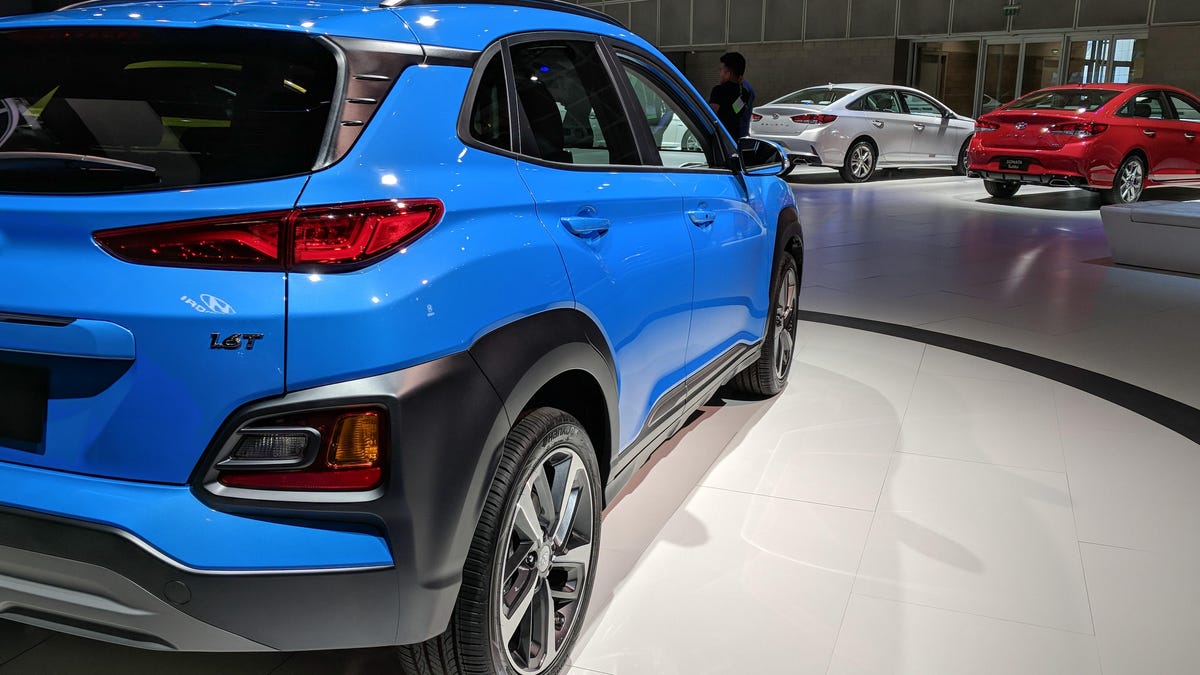2018 Hyundai Kona achieves competitive 30 mpg combined
All-wheel drive drops that figure to 27.

Before cars hit dealerships, the EPA determines its fuel economy and posts the results on its website. With the 2018 Hyundai Kona arriving soon, its fuel economy numbers are now published, and they're pretty alright.
The 2018 Hyundai Kona has four different EPA ratings, depending on which trim and drivetrain are selected. Its front-wheel-drive variants receive the highest fuel economy ratings, at 27-28 mpg in the city, 32-33 mpg on the highway and 30 mpg combined. Adding all-wheel drive reduces all three figures anywhere from 1 to 3 mpg. The full list is below:
2018 Hyundai Kona Fuel Economy
| Trim | City MPG | Highway MPG | Combined MPG |
|---|---|---|---|
| Kona 2.0 FWD | 27 | 33 | 30 |
| Kona 2.0 AWD | 25 | 30 | 27 |
| Kona 1.6 FWD | 28 | 32 | 30 |
| Kona 1.6 AWD | 26 | 29 | 27 |
The SE (base) and SEL trims of Kona receive a 2.0-liter I4 engine, good for 147 horsepower and 132 pound-feet of torque, and it comes mated to a six-speed automatic. Limited and Ultimate trims wield a 1.6-liter I4 putting out 175 hp and 195 pound feet, mated to a seven-speed dual-clutch transmission. Front-wheel drive is standard, but AWD is available for both engines.
So, how does that stack up against the competition? The Honda HR-V, which has a single powertrain on offer (a 1.8-liter I4 mated to a CVT), achieves 28 mpg city and 34 mpg highway. That's pretty close to both FWD Kona trims, but its 1.6-liter engine packs way more punch than the Honda.
The Kona also outperforms its competition from Chevrolet , although just barely. The 2018 Trax is rated at 25 mpg city and 33 mpg highway with front-wheel drive, dropping to 24 mpg city and 30 mpg highway with all-wheel drive.
While it's not necessarily stellar economy, it's competitive, which means Hyundai should fit in just fine as it finally attempts to break into the subcompact crossover market. Once it's on the road, it'll be up to us to figure out whether or not it competes with the Trax and HR-V in terms of how it actually feels.

